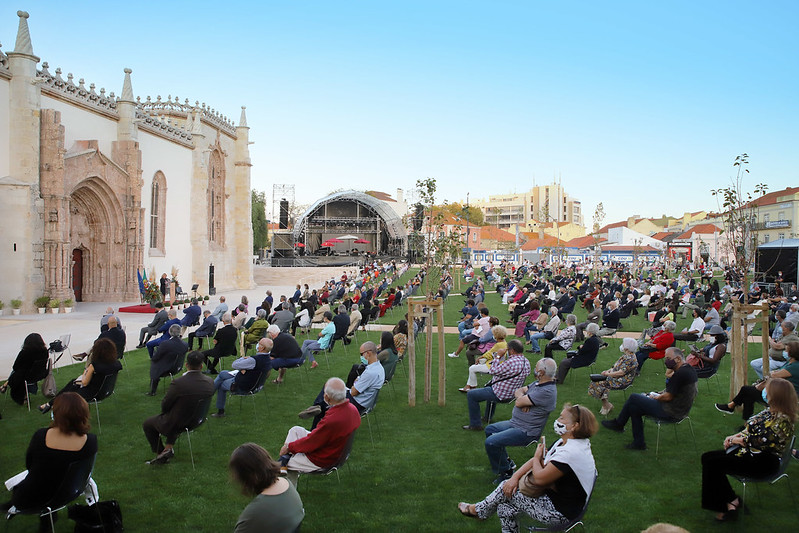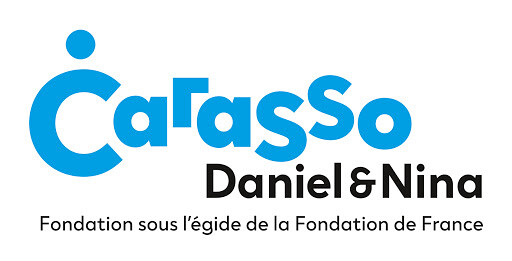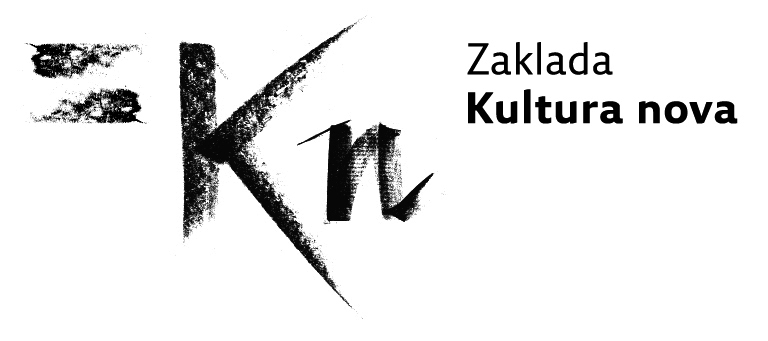European Cultural Heritage Green Paper “Putting Europe’s shared heritage at the heart of the European Green Deal”
 Credits: Municipality of Setúbal, CC BY-NC-SA 2.0
Credits: Municipality of Setúbal, CC BY-NC-SA 2.0 Credits: Municipality of Setúbal, CC BY-NC-SA 2.0
Credits: Municipality of Setúbal, CC BY-NC-SA 2.0Cultural Deal for Europe campaign is call for European Union to place culture at the heart of its political vision and ambition for years to come. Launched in November 2020 by Culture Action Europe, the European Cultural Foundation and Europa Nostra, acting also on behalf of the European Heritage Alliance, the campaign asks for culture and cultural heritage to be duly included in the EU’s recovery and funding programmes, its sustainable development strategies, and its relations with the rest of the world. Thousands of organisations and individuals endorsed the Cultural Deal for Europe campaign alongside the support of 110 European networks. The unprecedented challenges and unforeseen circumstances Europe and the world are currently facing call for coordinated and bold actions, from decision-makers and civil society alike: locally, regionally, nationally, across Europe and beyond.
The “Call to Action for low carbon and more inclusive culture” initiative, led by the city of Lille and Eurocities, invites mayors from across Europe to commit to the development of local cultural policies and events that prioritise sustainability and inclusivity. The Call is structured around 16 priorities, categorised into two pillars: the ecological transition of local cultural policies and events, and inclusion in culture and through culture. By signing it, cities commit to developing sustainable and inclusive cultural policies, implementing at least one principle from each pillar, and providing examples of their initiatives each year. Cities lead the way with projects encouraging the circular economy in culture, commissioning green artistic projects, or supporting sustainable museums and exhibitions. The inspiration for this call to action emerged from the Eurocities Culture Forum, which was hosted by the city of Lille and the European Metropolis of Lille in 2022, and focused on the theme of ‘Resilient and sustainable culture – local cultural policies supporting the ecological transition’. The city of Lille developed a draft, which was subsequently enriched with contributions from other Eurocities members. This is a significant step towards a more sustainable and inclusive cultural landscape across Europe.
“Culture 21: Actions” was approved in 2015 in Bilbao during the first Culture Summit of UCLG. This document renews the commitments of United Cities and Local Governments to highlight the interdependent relationship between citizenship, culture, and sustainable development. “Culture 21: Actions” supplements the Agenda 21 for Culture, and transforms it into concrete commitments and actions. It aims to be an international guide that is applicable worldwide and that promotes knowledge. It facilitates the exchange of good practices, and strengthens a global network of effective and innovative cities and local governments. Among its nine Commitments, Culture and Environment incorporates a list of specific actions that guide the work of local governments linked to Agenda 21 for Culture and which promote processes of self-evaluation leading to better fulfilment and more effective implementation of public policies and strategies.
This position paper, jointly developed by Culture Action Europe and its members, proposes concrete recommendations on how the future generation of EU funded, and especially the Creative Europe programme contributes to tackle the climate challenge.
Launched in 2019, the Funder Commitment on Climate Change (FCCC) presents a comprehensive and overarching framework that empowers funders across diverse fields of expertise, primarily within the UK, to actively contribute to addressing the root causes and consequences of climate change. Comprising six pillars of action (Education and Learning, Resource Allocation, Integration, Investment Stewardship for a Post-Carbon Future, Operational Decarbonisation, and Progress Reporting), this commitment provides foundations with a robust structure to effectively combat climate change. Signatories commit to aligning their strategies with climate considerations and making specific pledges in order to support initiatives and address climate-related challenges financially.
In 2023, the FCCC unveiled its third report, detailing the endeavours undertaken by signatories across these pivotal pillars. This report underscores the ongoing enhancement of existing initiatives. It outlines the strides made, particularly by new signatories, as they embark on their journey to make tangible progress in all areas.
The Green Art Lab Alliance (gala) is a diverse alliance initiated by artists and cultural practitioners seeking to address the breadth of environmental problems that beset the world. Since 2012, the gala has grown with partners in Europe, Asia, and Latin America. In light of the extreme urgency of our global crisis, the organisations that comprise the alliance have come together to bolster and amplify their manifold efforts to secure a sustainable future, and they are all committed to their co-written manifesto.
The Climate Heritage Network (CHN) is a voluntary, mutual support network of government agencies, NGOs, universities, businesses, and other organisations committed to tackling climate change and achieving the ambitions of the Paris Agreement. The network was launched in 2019 and works to reorient climate policy, planning, and action at all levels to account for dimensions of culture, from arts to heritage. ‘Culture at the Heart of Climate Action’ is a global call to the UNFCCC to include cultural heritage, the arts and creative sectors in climate policy. The initiative is asking for a ground-breaking Joint Work Decision on Culture and Climate Action, a UN process which would trigger policies and frameworks to enable culture to contribute fully to climate solutions. A JWD would launch a process to: understand how culture is already supporting climate actions and solutions; support cultural voices to influence audiences and consumers; unite the entire culture sector globally to scale up action on the most pressing issue of our time; influence key policies and discussions on adapting to the changing climate, decarbonising, supporting cultural knowledge keepers, safeguarding heritage and culture, and innovating with creativity.
The Green Arts Charter aims to help cultural organisations with their sustainability goals, to enable collective action, and establish shared goals and pledges.
The charter aligns with the Creative Carbon Scotland training programme to support organisations to deliver the pledges and commitments within the charter, alongside its growing online network to encourage peer-to-peer learning.
The charter runs parallel with and is connected to Creative Scotland’s criteria for funding programmes where organisations are asked about their environmental sustainability commitments or, in some cases, to report on their emissions and have a carbon management plan.
The Council for Culture is a statutory body entrusted with advising the Dutch Government and Parliament on matters related to the arts, culture, and media. It provides recommendations regarding cultural policy in the Netherlands, whether solicited or not. In 2023, the Council published a report titled “Cultuur Natuurlijk. Hoe duurzaamheid en cultuur elkaar versterken”, highlighting the potential synergy between sustainability and culture. However, it underscores the urgent need for a significant push to expedite sustainability efforts within the cultural sector. This advisory report targets the cultural sector, municipalities, provinces, national cultural funds, and the relevant ministries. The Council for Culture’s recommendations aim to expedite the sustainability transformation within the cultural sector and elevate culture’s role in broader societal sustainability initiatives. It acknowledges that, like many other sectors, the culture sector has yet to achieve climate neutrality and circularity.
The scope of culture in this report encompasses the arts, heritage, creative industry, and the media, both subsidised and unsubsidised. Advice is directed at the cultural sector and various governmental bodies, including pertinent ministries and national cultural funds, emphasising the nexus between sustainability and culture.
Conscious that the most significant challenge of our time is the fight against climate change, but that it is still insufficiently considered, the French Coalition of Foundations for Climate (CFFC) is committed to mobilising the entire philanthropic sector around this priority issue. More than just a manifesto, it is a call to action, collective mobilisation, and engagement.
In seven chapters, experts from the Czech Republic, Finland, Flanders, Germany, the Netherlands, Scotland and Spain investigate how cultural organisations in their own countries are becoming more sustainable, how artists are engaging with the climate crisis, and the role of culture in the general transition towards a greener society. While each chapter contains many inspiring initiatives and ideas unique to each country, there are also striking similarities. In most countries, sustainability is absent from national cultural policy, and culture is absent from climate policy. There is however a need for sustainable cultural policy: among other things to counter fragmentation of initiatives, to enhance collaboration or to offer funding, support and financial security. Another significant observation underlying all contributions is the importance of collaboration and of networks, which have achieved great results in the countries included in the publication. Authors are: Pavla Petrová (Czech Republic / Arts and Theatre Institute), Maria Hirvi-Ijäs, Anna Kanerva, Marjo Mäenpää (Finland / Cupore), Nikol Wellens (Flanders / Kunstenpunt), Marje Brütt (Germany / Kulturpolitische Gesellschaft), Sofie Krop, Mareile Zuber (The Netherlands / Het Groene Cultuur Bureau), Ben Twist, Katherine Denney (Scotland / Creative Carbon Scotland), Jordi Baltà Portolés and Herman Bashiron Mendolicchio (Spain / Trànsit Projectes and University of Barcelona).
The EcoArts Nexus is an online repository that compiles extensive knowledge at the intersection of the arts and the environment from various fields and practices. It includes resources such as examples of funding schemes for cultural adaptation and artistic practices addressing environmental issues, tools and guidelines, literature, awards, as well as initiatives, projects and organisations dedicated to connecting art and culture with the environment. Divided into 15 categories, the repository currently features over 250 entries. It serves as a living map, detailing the landscape of philanthropic institutions, public funding sources, the art world, and the cultural sector – all united in their commitment to addressing the urgent environmental challenges of our time. By being a continuous work in progress, we invite you to share and present your practices if they are still not included in this online archive.
The Kultura Nova Foundation initiated this repository of knowledge in arts and culture, environment and funding, within the framework of the Philea Arts and Culture Funders Forum (ACFF) and in collaboration with the Fondation Daniel et Nina Carasso.
At its core, the EcoArts Nexus is instrumental in gathering and disseminating information crucial for understanding and navigating the complex relationships between environmental policies, funding strategies, capacity-building programmes, and the development of green tools and guidebooks tailored specifically for the arts and culture sectors. It is a vast pool of reports, resources and data essential for different actors looking to foster a deeper engagement with environmental sustainability within their arts and cultural practices.
Beyond its function as a comprehensive data repository, the EcoArts Nexus aspires to play a transformative role in the cultural and environmental sectors. Its primary goal is to significantly enhance the visibility of current practices that merge ecological concern with cultural expression, thereby inspiring and motivating a broader spectrum of actors to embrace and drive positive change towards carbon-neutral cultural sector. Through showcasing innovative practices and facilitating access to a wealth of resources, this repository aims to foster efforts that not only address environmental urgencies, but also highlight the unique role of the arts and culture in advancing sustainable futures.
Offering open access to all its resources, the EcoArts Nexus is designed to be an adaptable and continuously growing document. It invites ongoing contributions and updates, welcoming new data, insights, and resources. By doing so, it serves the immediate needs of its users and contributes to a broader understanding of how the arts and culture can intersect with environmental sustainability to foster a more ecologically conscious and culturally vibrant world.
Being developed and curated under the supportive umbrella of the Philea Arts and Culture Funders Forum, the EcoArts Nexus represents an important example of the power of collective effort. The initiative benefits from the collective expertise of its main contributors, the Kultura Nova Foundation and the Fondation Daniel et Nina Carasso, with valuable additional contributions from Porticus and other philanthropy organisations in sharing data. The production of the Repository was supported by the Fondation Daniel et Nina Carasso and Philea Arts and Culture Funders Forum, while the roles of editing, coordination, future web maintenance, and updates were taken on by Kultura Nova. This collaborative model ensures that EcoArts Nexus remains a dynamic and evolving platform, responsive to the needs and insights of its diverse user base.

Philea Arts and Culture Funders Forum
The voice of European philanthropy, Philea nurtures a diverse and inclusive ecosystem of foundations, philanthropic organisations and networks working for the common good. Philea’s Arts and Culture Funders Forum aims to help shape the future of cultural philanthropy. It provides a forward-thinking environment for arts and culture funders in Europe to come together and work to reinforce the sector. It also offers engaging opportunities for site visits, in-person events and webinars.

The Fondation Daniel et Nina Carasso works to bring about a society that is respectful of the environment, one that is inclusive and in which people can flourish. It focuses on two major areas, Sustainable Food Systems – ensuring universal access to healthy food produced in a manner that respects people and ecosystems; and Art in the Community that aims to foster critical thinking and reinforce social cohesion. It is a private family foundation that was created in 2010 under the aegis of the Fondation de France. It is independent of any corporation.

Kultura Nova Foundation provides professional and financial support to civil society organizations in contemporary arts and culture in Croatia. In order to create sustainable landscape for the sector, Kultura Nova creates various support programs as well as its own educational programs in the field of cultural management. It also participates in the formation of innovative cultural policies and develops research programs to better understand and create long-term strategies for the sector.